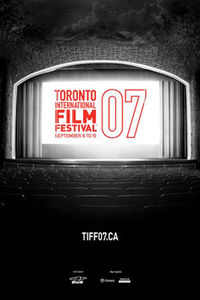Film Festivals
 Poster for the 2007 Toronto International Film Festival
Poster for the 2007 Toronto International Film FestivalLike me, every year you may hear about the Film Festivals on the news and say hey, that sounds cool, all those movie stars going to these events. But you wonder what is the idea, what is the role of the festival? How long have they been around and where did they start? This article will take a brief look at film festivals and their role in the movie industry.
A film festival can be defined as an organized showing of numerous films over a pre-arranged timeframe, and often at a number of venues within a particular city or localized region. Festivals can have a particular theme or style of film, such as a horror film festival, or independent movies only, or they can cover many spectrums and be high-profiled. They can also be closed festivals (open only to the film industry) or be open festivals where stars and industry greats mingle with the general public.
The first major film festival was held in Venice, Italy in 1938. Over the next 20 years other major festivals popped up in places such as Berlin, Moscow, Cannes, Edinburgh and many others. The first North American film festival took place in 1953 and is known as the Columbus International Film & Video Festival. In 1957 the San Francisco International Film Festival became the second in North America. Today there are thousands of annual film festivals with showings ranging from only a few to hundreds of films. For instance, in 2008 Toronto had 250 feature films screened and Cannes had 1070 and in 2007 the Dominican International Film Festival screened 15. Currently, the Toronto International Film Festival and the Cannes Film Festival are vying for the top spot as the world's preeminent festival. Cannes has more screenings and has more posh and glitz, but Toronto is more widely attended with over 400,000 attendees annually.
Originally, film festivals began as a way for industry insiders to exhibit their best works in an international context. To a certain extent the festivals have held on to this role, however a couple other goals have been added to the film festival. As the festivals grew in popularity and the wider public was given greater access to the events the festivals became a way to showcase smaller films, and foreign films, to audiences which normally would not have gotten the opportunity to see them. It has also become a way for these smaller, independent films to avail themselves upon the big studios and possibly gain a bigger distributer. The Sundance Film Festival is a great example of this goal at work. That festival is a great champion of the independent film, and has now been the place to screen your small film in hopes of achieving greater acclaim. Finally, also in the last decade or so, the festivals have been a way for studios to "test the waters" for mid-sized projects which normally would not have shown at a festival and gone straight to a non-festival world premiere event.
How does a film get chosen to be screened at a festival? Well firstly, many festivals, particularly the larger ones, require an entry fee to even submit a film for consideration. Most small festivals do not require a fee, however the audiences for these festivals will obviously be much smaller. The films submitted will have to meet a certain criteria such as style or type of film, or completion date, and sometimes special consideration is given to a film whose screening will be the world premiere. Finally, once the criteria are passed then the film is viewed by a committee or board and inclusion or exclusion is decided upon. For larger-budget hollywood-styled movies sometimes inclusion in a festival is not necessarily a must to become a blockbuster, but for smaller movies and independent movies, festival inclusion can be a make-or-break type decision.
No matter the size of the movie, or the role of the film festival, the increased press and stature given to film festivals over the last number of years has only helped with exposure for the movie industry, as well as showcasing the host cities, and most importantly of all, allowed the general public to, if only for a while, feel like they were part of the glamorous movie industry.
